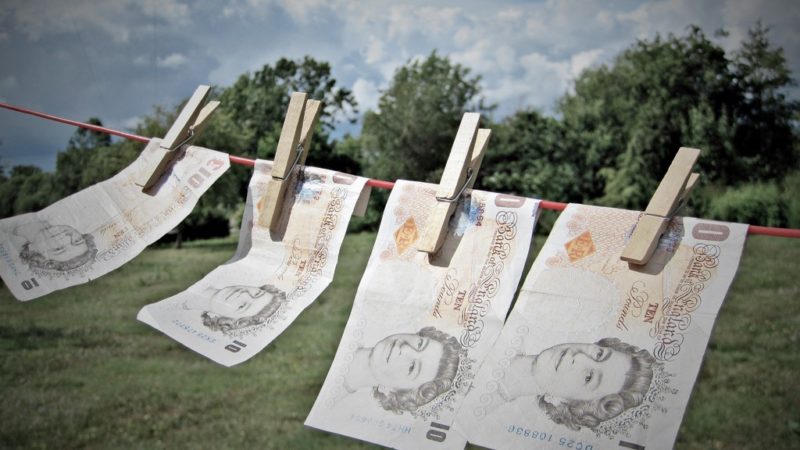Prof Prem Sikka delves into the UK's broken money laundering rules.

Tax Justice Network has published its 2020 Financial Secrecy Index. It’s a vital tool for understanding how countries facilitate global financial secrecy.
Secrecy provides cover for corrupt practices. An estimated US$21 to $32 trillion of private financial wealth is located, untaxed or lightly taxed, in secrecy jurisdictions around the world. Western countries are key nodes in global illicit financial flows, with the Cayman Islands, the USA and Switzerland holding the top three spots in the table of 133 countries.
The UK is ranked the 12th most secretive jurisdiction, with its Overseas Territories and Crown Dependencies being leading providers of secrecy – thereby facilitating corrupt practices. It’s a far cry from the popular image of the UK championing transparency, good regulation and public accountability.
Failure of Institutions
Corruption takes many forms and is commonly associated with the abuse of entrusted power for private gain. In liberal democracies, a number of checks and balances seek to curb nefarious practices and halt the tide of corruption. But such arrangements are weak and have become servants of corporate power.
Hardly any party or individual can successfully run for high office without approval from corporations or billionaires controlling the media. They shape people’s choices. Corporate interests are writ large into economic/social policies and regulatory apparatuses. Too many legislators toe the party line and do little to challenge the rising tide of institutionalised corruption of associated loss of public confidence in institutions of democracy.
Big business showers money on influential politicians. Prime Minister Boris Johnson recently enjoyed a £15,000 holiday – officially registered as being funded by David Ross, a Conservative donor who co-founded the Carphone Warehouse. Former Prime Minister Theresa May collected £96,000 from a speech at PricewaterhouseCoopers (PwC), a firm responsible for BHS, Redcentric and other audit debacles. These are by no means isolated examples of favours and revolving doors that give businesses easy access to policymakers, which is beyond the reach of ordinary people.
People expect the press to check/expose corporate malpractices. But the media itself is owned by profit maximising corporations and disciplined by advertisers. According to Peter Oborne, the Daily Telegraph’s former chief political commentator, the newspaper had a policy of suppressing negative stories about HSBC, including its role in allegedly helping wealthy clients to dodge taxes. Oborne alleged that the paper’s policy was to protect the advertising revenues from HSBC.
Corrosive consequences
Under the influence of corporate power, the state has been restructured. One of its objectives is to guarantee profits for corporations, as evidenced by outsourcing of public services, private finance initiative (PFI) and corporate consultancies. Billions of pounds in tax concessions are handed-out with little idea of whether they achieve any economic objectives.
At corporate behest, governments dutifully squeeze labour. Anti-trade union laws have reduced workers’ share of the gross domestic product from 65.1% in 1976 to 49.7% at the end of September 2019. Ordinary workers have faced a 12 year wage freeze and average wages have barely risen, but there is unrestrained fat-cattery in the boardrooms of major companies.
Regulatory chaos
Corporate grandees control the labyrinth of over 700 ineffective regulators. More than 41 regulators deal with the finance sector yet product mis-selling, interest and foreign exchange rate rigging, forging of signatures and frauds are rife. In 2012 former Chancellor George Osborne secretly wrote to the US regulators urging them to go easy on HSBC which paid a $1.92bn fine for alleged involvement in money laundering. The UK-based Bank of Credit and Commerce International (BCCI) was the site of the biggest banking fraud of the twentieth-century and was forcibly closed in July 1991. To this day, there has been no independent investigation as successive governments protect the City of London from critical public scrutiny.
25 ineffective regulators deal with money laundering and UK has become a central node in illicit financial flows. There is little effective supervision of accountants implicated in money laundering. 22 of the money laundering regulators are outside the freedom of information (FOI) law.
Insolvency practitioners are bleeding insolvent businesses dry with high fees. The industry is regulated by five trade associations, mainly accountancy bodies, but there is no investigation of rip-off charges. They are also outside the FOI net.
Asleep at the wheel
Big accountancy firms are central to a global tax avoidance industry and routinely deplete the public purse through complex avoidance schemes. On a number of occasions, the courts have declared their schemes to be unlawful, but no big accountancy firms has been investigated, fined or prosecuted.
The UK House of Commons Public Account’s Committee has investigated tax avoidance by Google, Starbucks, Amazon, Shire and others, as well as the role of the big four accounting firms in devising the schemes, but the government has failed to bring any test cases. Partners from big four accounting firms can be found at HMRC governance structures and the firms continue to receive taxpayer funded contracts.
The tide of institutionalised corruption can only be checked by invigoration of democracy, which is in short supply.
Prem Sikka is Professor of Accounting at University of Sheffield and Emeritus Professor of Accounting at University of Essex. He is a Contributing Editor to LFF and tweets here.
Left Foot Forward doesn't have the backing of big business or billionaires. We rely on the kind and generous support of ordinary people like you.
You can support hard-hitting journalism that holds the right to account, provides a forum for debate among progressives, and covers the stories the rest of the media ignore. Donate today.



